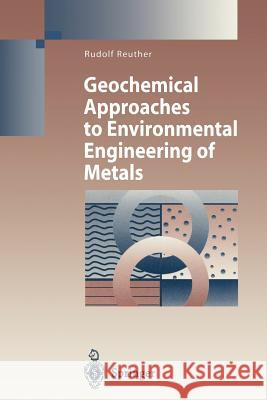Geochemical Approaches to Environmental Engineering of Metals » książka
Geochemical Approaches to Environmental Engineering of Metals
ISBN-13: 9783642795275 / Angielski / Miękka / 2011 / 221 str.
It is not long ago that scientists realized, our study and understanding of most environmental problems call for a cross-sectional, more holistic view. In fact, environmental geochemistry became one of the legs to stand on for such a required interdisciplinary approach. Geochemists do not only describe the elemental composition and pro cesses of natural systems, such as soils, ground or surface waters, but they also establish the methodology to quantify material rates and turnover. Today, geochemical expertise has become indispensable when monitoring the fate of noxious chemicals, like-metallic pollu tants released to the environment. To know how trace metals will be have and react in complex systems under changing conditions, might provide us with a more realistic estimate of what is really acceptable in terms of quality standards. This would ease the formulation of ade quate environmental objectives, strategies and criteria to handle emerging pollution situations. Moreover, to take notice of geochemi cal principles will support our endeavor to improve the way we deal with limited and nonrenewable resources. It is exactly here, i. e. at the interface between natural elemental processes and the way we use them, that geochemical approaches meet the demand of technical at tempts to minimize the impact of environmentally relevant activities, like mining, waste handling, or manufacturing. The consideration to include geochemically derived concepts into the search for technical solutions is not really new, but has a long tradition during the evolution of modern societies."











